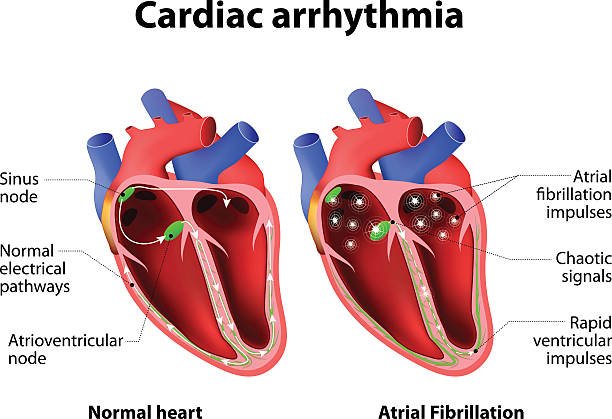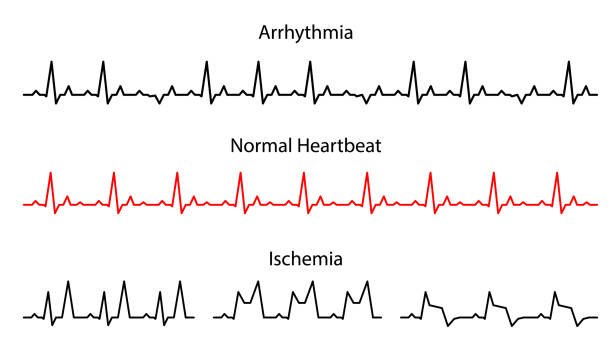
What is the Normal Heartbeat Value? Why is it Too Fast or too Slow? Teach You How to Calculate Resting Heart Rate Using Pulse
Modern people’s health awareness is gradually increasing, and many people are very concerned about their blood pressure, blood lipids and blood sugar levels in order to reduce the risk of heart disease.
However, in addition to measuring blood pressure, the key indicator of heart health also includes “heartbeat rate.” Whether the heartbeat is too fast or too slow, it will cause harm to the human body. Therefore, when the heart is racing, it may not be as good news as encountering Tiancai. So, How many heartbeats should the heartbeat have to be normal? What should you do if you find that your heart is beating too fast? This article will give you a deeper understanding!
What is the normal heartbeat value? normal pulse range
How many heartbeats does it take to be within the normal range? Generally speaking, heart rate is expressed in terms of beats per minute (Bpm), while the resting heart rate of adults is usually between 60 and 100 beats per minute (bpm), which is “resting” Heart rate” (RHR).
When the resting heart rate is lower than 60bpm, there may be a problem of slow heartbeat. If it is higher than 100bpm, you should pay attention to whether the heartbeat is too fast (tachycardia) and further consult a doctor based on your personal condition.
Resting heart rate algorithm: feel the pulse for 15 seconds to calculate the heartbeat for one minute
Because the heart rate unit is the number of heartbeats per minute (60 seconds), if you want to calculate it manually, you only need to feel your pulse, count the number of pulse beats in 15 seconds, and then multiply by 4 to equal the resting heart rate (beats/minute). For example: if the pulse beats 15 times in 15 seconds, that is, 15×4= 60bpm (beats/minute), it is a normal resting heart rate.
Causes of too fast or too slow heartbeat
The heartbeat rate will be changed by many factors. For example, exercise will cause the heartbeat to speed up, while the heartbeat will slow down during sleep. In addition to these two common causes, the following conditions may also affect the heartbeat speed:
- Autonomic nervous system disorder
- Ingesting caffeine
- Nervous
- High pressure
- Anemia
- Hypotension
- Pulmonary embolism
- Heart disease (coronary heart disease, rheumatic heart disease, congenital heart disease)

Heartbeats that are very fast or very slow are arrhythmias
Heartbeat is related to physical health, and some diseases can change the excitement level of sympathetic and parasympathetic nerves, causing changes in heartbeat rate and rhythm, forming what we often hear as “arrhythmia.” Arrhythmia is just a general term. A heartbeat that is too fast, a heartbeat that is too slow, or a heartbeat that contracts irregularly is a type of arrhythmia.
There are many causes of arrhythmia. Abnormal electrolyte metabolism, drugs, and congenital cardiac structural abnormalities are all factors of arrhythmia. When you have an irregular heartbeat, you may also experience the following symptoms:
- Palpitations
- Chest tightness
- Chest pain
- Dizziness
- Breathing very hard
- Difficulty breathing
- Hypotension
- Exhausted
Arrhythmias include atrial fibrillation, ventricular pulsation, sinus node disease syndrome, atrioventricular conduction obstruction and other different manifestations. Among them, ventricular pulsation and atrial fibrillation are particularly dangerous.
According to statistics from Gengxin Hospital, nearly 90% of patients with arrhythmias die suddenly due to the above two symptoms. Therefore, if you find that you have the above symptoms, you should seek medical examination as soon as possible and pay strict attention to changes in heart rate. Follow the doctor’s advice to adjust your lifestyle. Reduce risk of death.

2 methods for measuring normal heart rate
Here are 2 ways to measure your pulse and heart rate:
- To measure the radial artery pulse:
Stretch out your index and middle fingers, find the wrist under the thumb side of the other hand, and gently press there to feel the pulse. - Find the pulse of the carotid artery:
Stretch out your index and middle fingers and place them in the soft depressions of the side muscles of your neck to feel the beating of the carotid artery.


When to measure resting heart rate
Resting heart rate refers to the number of heartbeats per minute when a person is resting quietly. The best time to measure it is when you wake up in the morning and before you get out of bed. Take 15 seconds to calculate your resting heart rate. I’m too lazy. To convert by multiplying by 4, just remember that if the heartbeat is lower than 15 beats or higher than 25 beats in 15 seconds, special attention should be paid to whether there are other factors that cause the heartbeat to be too fast or too slow.
The slower your heartbeat, the healthier you will be?
A resting heart rate that is too high or too low may be a health warning. However, generally speaking, a lower resting heart rate means that the heart is healthy and strong enough. It only needs to beat a certain number of times to fully supply blood to the whole body, and the chance of myocardial infarction is also lower. Low. Studies have also shown that a higher heart rate is one of the risk factors for cardiovascular disease. According to a report by the Women’s Health Institute (WHI), a lower resting heart rate can protect the heart and reduce the chance of myocardial infarction (heart attack).
It is recommended that the public must maintain the habit of regular exercise. In addition to improving the condition of the three highs and cardiovascular health, after continuing to exercise for a period of time, you will find that your resting heart rate has also magically dropped.
How to improve heartbeat that is too fast or too slow?
A lower heart rate generally indicates a healthier cardiovascular condition, which can help improve heart rate problems in the following ways:
- Maintain a normal daily routine:
Getting enough sleep and avoiding staying up late can help maintain emotional stability and promote cardiovascular health. - Appropriate supplement of magnesium and potassium:
You can consume foods rich in magnesium and potassium in your daily diet to balance the effects of calcium, slow down the heartbeat, and prevent tachycardia attacks. - Moderate exercise:
Exercise can not only enhance cardiopulmonary function, but also help increase the level of high-density cholesterol (LDL, commonly known as good cholesterol) in the body and reduce the risk of atherosclerosis and coronary heart disease. - Develop the habit of measuring blood pressure:
Self-measuring blood pressure or pulse can help us monitor and record our own heart health. It also makes it easier for us to seek medical treatment as soon as possible and receive professional diagnosis from a doctor if there are abnormalities in heartbeat or blood pressure.












